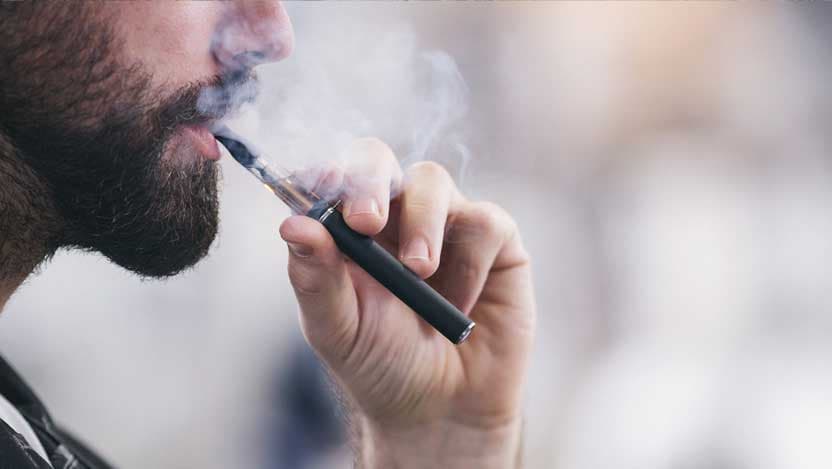Understanding vaping and its risks

It is no secret that vaping — inhaling nicotine, flavorings and other chemicals from an electronic cigarette (e-cigarette) — is growing in popularity, particularly among young people. A recent nationwide survey from the American Society of Clinical Oncology found that one in five young Americans thinks vaping is both harmless and non-addictive. The study also found that many also believe flavored e-cigarettes carry less risk than regular cigarettes and other tobacco products.
However, this seems to be far from the case. According to the Centers for Disease Control and Prevention, as of October 31, 2019, more than 1,888 lung injury cases and 37 deaths have been associated with the use of e-cigarette products.
To learn more about vaping use and its effects on health, we turned to Andrea King, PhD, professor of psychiatry and behavioral neuroscience and director of the Clinical Addictions Research Laboratory at UChicago Medicine. King studies tobacco addiction and treatment, including the use of e-cigarettes. She is also co-leader of the Cancer Prevention and Control research program at the UChicago Medicine Comprehensive Cancer Center and director of the tobacco treatment program Courage to Quit.

Andrea King, PhD
Andrea King, PhD, is a psychiatrist who focuses on tobacco and alcohol addiction, assessment and treatment of substance use disorders, and cancer prevention and control.
Read Dr. King's profileSmoking Cessation Program
Everyone’s journey to quit smoking is different, but you don’t have to do it alone. Courage to Quit® (CTQ), a group-based approach to smoking cessation, helps patients like you overcome tobacco addiction and quit smoking for good.
Learn more about our smoking cessation programs.